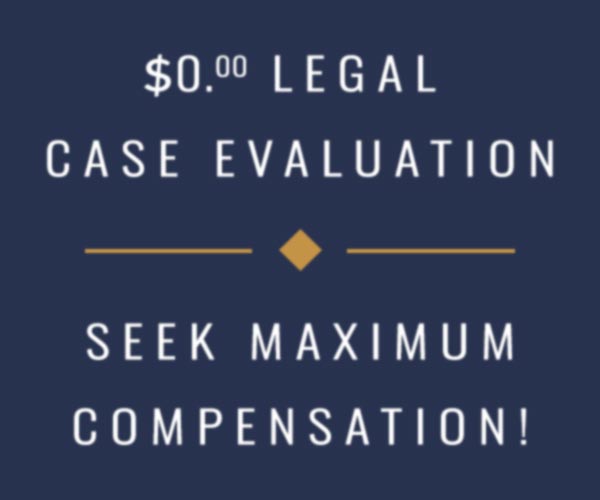How To File a Workers’ Compensation Claim
Home » Cincinnati » How To File a Workers’ Compensation Claim
Workplace accidents and injuries in the tri-state area are common, particularly within the agriculture, construction and manufacturing industries.
Workers’ compensation exists to help employees who suffer job-related injuries cope with financial burdens like mounting medical costs. But many workers are unsure how to file a claim for benefits and don’t know that they have the right to work with an attorney to help recover the financial assistance they need.
The Cincinnati workers’ compensation attorneys at Young, Reverman & Mazzei are committed to protecting the rights of injured laborers from Ohio, Indiana and Kentucky. If you or a loved one was hurt in a work-related accident and would like help pursuing a workers’ compensation claim, please call us today at 513-854-8885 or contact us online for a free consultation about your options.
 The time limits for reporting an injury and filing a workers compensation claim varies by state. The guidelines for filing claims in the tri-state area are as follows:
The time limits for reporting an injury and filing a workers compensation claim varies by state. The guidelines for filing claims in the tri-state area are as follows:
Table of Contents
Basic Eligibility for Workers’ Compensation
Each state has different rules for seeking workers’ compensation benefits, but the basic eligibility requirements are generally the same:You Must Be An Employee
In some cases, independent contractors and volunteers may still qualify for Workers Compensation benefits, but the rules for eligibility in these cases varies by state.Your Employer Must Possess Workers’ Compensation Insurance
Most employers are required to carry workers compensation insurance. However, states differ in their rules regarding what types of employers must have workers’ compensation insurance.Your Injury Or Illness Must Be Work-Related
To be eligible for workers compensation benefits, your injury must have been sustained in the course of your job duties. The injury does not have to have occurred at the workplace, but it does have to be the result of performing work-related tasks.Related: Am I Eligible for Workers’ Compensation Benefits?
You Must Meet Your State’s Deadline For Filing A Workers’ Compensation Claim
These deadlines vary by state. Check with your state’s workplace injury board, or consult an experienced attorney to find out the deadlines for filing a claim where you live. Workers compensation does not cover self-inflicted injuries, injuries suffered while the employee was not working, injuries suffered while the employee was committing a crime, injuries that resulted due to a violation of company policy, or injuries caused by an employee’s use of alcohol or other drugs.Related: How Long Do I Have to File a Workers’ Compensation Claim?
Filing a Workers’ Compensation Claim
After you’ve received medical attention and reported your injury to your employer, it’s time to consider submitting a claim for workers compensation benefits. While you are not required to work with a lawyer to pursue workers’ compensation benefits, doing so has advantages. A knowledgeable workplace injury attorney can help maximize your benefits while relieving some of the stress you’re facing so you can focus on recovery. In addition to ensuring your workers’ compensation claim is properly filed, an attorney can analyze the circumstances of your injury and determine if you might also be eligible for additional Social Security disability benefits. This is often an option for those who suffer a disabling impairment that is expected to last at least 12 months. If you wish to file a claim directly, you may do so via your state’s Workers’ Compensation Board. The U.S. Department of Labor maintains a list of each state’s workers compensation office, where you can obtain additional information regarding necessary supporting documentation and rules for filing a claim. The time limits for reporting an injury and filing a workers compensation claim varies by state. The guidelines for filing claims in the tri-state area are as follows:
The time limits for reporting an injury and filing a workers compensation claim varies by state. The guidelines for filing claims in the tri-state area are as follows:
- Ohio: Workers generally have two years from the date of the injury to file a claim. If the claim is for work-related illness, the employee must file within one year of becoming ill or within six months of formal diagnosis by a doctor.
- Kentucky: Workers must file a “First Report of Injury” as soon as possible or within 30 days of the injury. Workers generally have two years from the date of the injury or three years from the onset of an occupational illness to file a claim for benefits.
- Indiana: Workers must notify their employers within 30 days of a work-related injury, but have two years to file a claim for workers’ compensation benefits.
Appealing a Denied Workers’ Comp Claim
Many otherwise eligible claims for workers compensation benefits are denied due to simple mistakes made during the filing process. If your benefits application was denied, you have the right to appeal your rejected workers’ compensation claim. Each state has strict deadlines for appealing denied workers’ compensation claims:- Ohio requires that all appeals be made within 14 days after receiving notification of denial.
- Kentucky requires that workers who have been denied apply for a “Petition for Reconsideration” within 14 days from the date of denial.
- Indiana requires appeals to be made using an “Application for Review by the Full Board” form within 30 days of a denial.
How a Workers Compensation Attorney Can Help
An experienced personal injury lawyer can ensure that your claim or appeal is properly documented and submitted on time. A knowledgeable attorney can take the lead on all related paperwork and represent you at appeals hearings so you can concentrate on moving forward with your life. Young, Reverman & Mazzei was founded in 1972 to protect the rights of injured workers from the greater Cincinnati area, including our neighbors in Kentucky and Indiana. To learn more about your rights after a workplace injury, please call us at 513-854-8885 or contact us online. We offer free consultations to help you understand your options, and we don’t charge for our services unless we successfully obtain benefits on your behalf. For a complete list of our tri-state offices and directions, please see our locations page.Testimonials
"Jay bolton really took care of me and cared about my case and time. Great attorney very professional gets the job done!"
- Thomas M.
"Excellent group of Attorneys and staff, they were a tremendous help to my family and I."
- Ronald O.
I work with this office on a daily basis. Always prompt on returning emails and phone calls. We enjoy doing business with this firm.Highly recommended.
- Kendra R.


